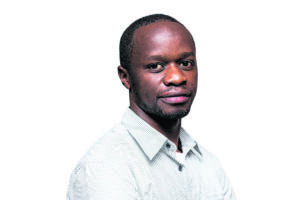Opinion
Straight Up: Keeps on kicking the refugees
Zach Khadudu
This article is more than 9 years old.
At no time in recent history has Denmark received such sustained criticism from friends and foes than this January.
Villainy and no valuables
The so-called ‘jewellery laws’ saw unprecedented international attention being paid to the small Scandinavian paradise (little pun).
Some pundits went as far as comparing the new laws to Nazi Germany: “Give us the money, the gold, phones, all valuables – well, almost all … you can keep that wedding ring! In exchange you’ll get a bed in a cold tent, some meals and three years of waiting to see your family – if you’re lucky enough to stay.”
Condemnation for the controversial laws has been coming in thick and fast: from New York to Geneva, and Beirut to Mexico. A week after the laws came into force, Danish police admitted to British newspaper The Telegraph that they had not been able to seize any valuables so far. “It is zero,” said Lars Andersen of the Danish National Police.
Even more secluded
Perhaps to make up for that mission impossible, the police confiscated mobile phones from at least 55 unaccompanied asylum-seeking children. The police justified the confiscation of the phones as the only way to identify those with no other ID documents.
Whatever the justifications – real or imagined – the precedence this invasion of privacy sets is troubling. For kids, some as young as 12, who have travelled alone on dangerous routes, taking away their only source of communication, on occasion by force, is deeply traumatising.
Closed gates of integration
This is not the only concern with the new laws; for far too long, migrants, refugees and Muslim communities in this country have been accused of creating parallel societies. The accusations are often to the effect that ‘they’ (Muslims/refugees/migrants) don’t want to integrate, to learn the language, or indeed, to follow ‘our’ values.
According to the government, this has been one of the many reasons for a need to tighten the aliens act (the law that covers migrants in general). In the meantime, the same government that accuses these minority groups of perpetuating ‘parallel societies’ is itself committing the same vice – on a grand scale.
The jewellery laws condemn asylum-seekers to live in secluded refugee camps away from the rest of society. Their movement in and out of these camps is highly restricted. The possibilities to meet Danes at workplaces or education institutions is highly limited. And we expect them to integrate better!
A beacon of hope
In the eyes of the government, the laws may seem successful in deterring refugees from flocking into Denmark for the moment. But the long-term implications for the fabric of the society may be devastating. Experts have warned that these measures are bound to increase xenophobia and the animosity between the natives and the migrants; the writing is already on the wall.
On a positive note though, while the madness of the new laws stole the limelight, a glimmer of hope is beaming. Organised civil groups of Danes are fighting the draconian laws in their own small ways. Groups such as Venligboerne and scores of others are pushing against this xenophobic tide. It’s not all lost folks.

About
Zach Khadudu
Zach Khadudu is a Kenyan by birth and a journalist by choice. He is a commentator and an activist with a passion for refugee and human rights. He may share a heritage with a certain US president, but his heart lies elsewhere – in the written and spoken word.










































